Alcohol Addiction Treatment in California
In California, the issue is no different. Thousands of residents each year struggle to break free from the relentless grip of alcohol dependence. It impacts students, working professionals, and seniors alike, often eroding health, relationships, and self-worth over time. If you or someone you love feels trapped by alcohol use, understanding the warning signs, health effects, and evidence-based treatment options available is the first step toward lasting recovery.
Some of the most common signs of alcohol addiction include:
- Increased tolerance: Needing to drink larger amounts over time to achieve the same effect.
- Withdrawal symptoms: Experiencing shakiness, nausea, sweating, or anxiety when not drinking.
- Loss of control: Being unable to stop drinking once the person’s started.
- Neglecting responsibilities: Missing work, school, or family obligations due to drinking (or recovering from drinking).
- Prioritizing alcohol over other activities: Choosing drinking over hobbies or time with loved ones is a sign that the addiction is becoming unmanageable.
- Continued use despite consequences: It’s a sign of addiction if a person is continuing to drink alcohol even after experiencing legal issues, relationship problems, or health concerns due to alcohol.
- Secretive behaviors: Hiding alcohol around the house or lying about how much has been consumed is a classic example of addiction.
When is it Time to Seek Help for Alcoholism?
- Driving under the influence, even if a person knows the risks.
- Experiencing blackouts or memory lapses.
- Feeling unable to get through the day without drinking.
- Becoming irritable or defensive when confronted about drinking habits.
- Drinking alone or at inappropriate times, such as early morning or during work hours.
If these signs resonate with you or someone close to you, it’s crucial to reach out for professional support. Alcohol addiction is progressive and can increasingly hurt the body without intervention. But recovery is always possible with the right treatment plan.

Short- and Long-Term Effects of Alcohol Addiction
- Impaired judgment and coordination
- Lowered inhibitions
- Slurred speech
- Blurred vision
- Memory lapses or blackouts
- Aggressive or erratic behavior
These effects can occur even after a single episode of heavy drinking, putting both the drinker and those around them in danger.
Long-Term Effects
- Liver damage, including fatty liver, hepatitis, and cirrhosis.
- High blood pressure
- Cardiomyopathy
- Stroke
- Brain damage
- Cognitive decline
- Aggravated symptoms of certain mental health disorders
- Weakened immune system
- Pancreatitis
- Digestive issues
- Financial issues
- Social and relationship breakdown
- Unemployment
- Legal issues
- Increased rate of developing certain cancers, including mouth, throat, esophagus, liver, colon, and breast cancer.
Individuals struggling with alcohol addiction often face mental health challenges, such as anxiety disorders or bipolar disorder. People require integrated treatment to heal effectively.
Why Do People Develop Alcohol Addiction?
In California’s fast-paced culture, it is common for professionals to use alcohol to unwind after demanding workdays, while young adults might engage in binge drinking in social settings without recognizing when casual use turns into dependence. There may be increased pressure to participate in drug use in social settings. Some industries (such as food service) have strong cultures of drug use because it’s perceived as essential for keeping up with day-to-day challenges.
Traumatic experiences, such as childhood abuse, neglect, or witnessing violence, can also influence the development of alcohol addiction. Many individuals use addictive substances to numb painful memories or mute the everyday symptoms of PTSD. Over time, using alcohol and other drugs may feel like the only way to function. But this ultimately leads to even more emotional pain while also damaging the person’s physical health.

Treatment Options for Alcohol Addiction
An outpatient treatment program can provide flexible support for individuals who do not require 24-hour supervision. It is ideal for those with mild to moderate addiction or those transitioning from a higher level of care. Outpatient programs include:
- Regular therapy sessions, including individual and group counseling
- Education about addiction and relapse prevention
- Coping skill development to handle triggers in real-world environments
- Continued accountability while the person works to maintain work, school, or family commitments
An Intensive Outpatient Program (IOP) is a step up from standard outpatient care, offering more structured treatment while still allowing clients to live at home. IOPs are well-suited for those needing a higher level of support outside of full-time treatment, often involving:
- Multiple therapy sessions per week
- Group therapy focusing on peer support and connection
- Evidence-based therapy like Cognitive Behavioral Therapy (CBT) and Motivational Interviewing (MI)
- Family therapy options to help rebuild trust and communication at home
- Flexible scheduling for working professionals, students, or caregivers
A Partial Hospitalization Program (PHP) provides the most intensive outpatient treatment available. Clients attend structured programming during the day, similar to a residential program, but return home in the evenings. A PHP treatment may include:
- Daily clinical therapy and psychiatric support
- Comprehensive medical and psychological assessments
- Medication management for alcohol cravings or co-occurring mental health disorders
- Holistic therapy treatments such as mindfulness, yoga, or fitness programs
- Discharge planning and step-down care to ensure a smooth transition to IOP (or another outpatient level of care)
Westlake Village Recovery Center recognizes that not everyone can attend treatment in person due to location, health, or scheduling barriers. Telehealth services bridge this gap by providing:
- Secure, HIPAA-compliant virtual therapy sessions
- Individual and group counseling from the comfort of home
- Regular check-ins with clinicians and case managers to track progress
- Continued connection and support without commuting or disrupting the person’s schedule
Telehealth allows you to receive professional, compassionate care wherever you are in California.
Many individuals with alcohol addiction also experience co-occurring mental health disorders. Dual diagnosis treatment addresses both conditions simultaneously to support full recovery and prevent relapse. This approach includes:
- Integrated treatment plans tailored to mental health and addiction needs
- Therapy modalities such as Cognitive Behavior Therapy (CBT), Dialectical Behavior Therapy (DBT), and trauma-focused care
- Psychiatric evaluations and medication management
- Relapse prevention strategies that take mental health triggers into account
- Education on healthy coping skills for emotional regulation
Life After Alcohol Addiction Treatment
Aftercare may include:
- Ongoing outpatient therapy for continued growth
- Support groups such as Alcoholics Anonymous (AA) or SMART Recovery to provide community
- Alumni programs to help maintain connections with peers and mentors
- Relapse prevention planning, including recognizing warning signs and building crisis strategies
- Lifestyle recommendations focusing on nutrition, exercise, and mindfulness to sustain physical and emotional health
Receive Support for Alcohol Addiction at Westlake Village Recovery
We believe that addiction treatment is not a one-size-fits-all process. Our programs are designed to meet your unique needs, preferences, and goals, whether you require outpatient support, intensive therapy, or integrated dual diagnosis treatment. With a compassionate team of licensed clinicians, addiction counselors, and mental health professionals on your side, you can rediscover your strength and build a life free from alcohol dependence.
If you or someone you love is struggling with alcohol addiction, don’t wait to seek help. Contact Westlake Village Recovery Center now to learn more about our alcohol addiction treatment programs in California.


